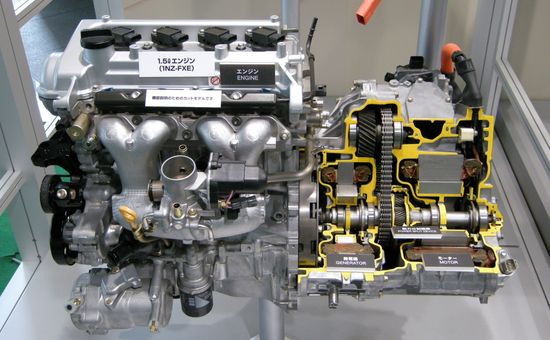What's Toyota Up to With Its Green Research Grants?
/
Toyota has been taking all kinds of steps lately to secure its role as one of the more forward-thinking car companies. That includes a green energy research fellowship, just making its second annual round of grants.
The philanthropy of automakers isn’t super-exciting for the most part, but Toyota has been catching our eye more than usual lately.
The manufacturer has taken on some interesting environmental giving, and committed at least $1 billion to support academic research on artificial intelligence. Combine that with its embrace of hydrogen fuel cells instead of its competitors’ plugin vehicles, and Toyota seems dead-set on getting out in front of the herd as a car company of the future. (Just a note—a lot of this comes from different divisions of the company, but for the sake of simplicity, let’s just call it all “Toyota.”)
Related:With an Eye on Profits, Another Car Company Gives Big for Campus Research
While not as dramatic as its autonomous vehicle university partnerships, I was recently surprised to find out that Toyota funds a research fellowship for work on “green energy technology that may promote the development of next-generation vehicles capable of utilizing alternative fuels.”
The program, in partnership with the Electrochemical Society, identifies three main challenges for the automotive industry in the RFP—finding a replacement for oil as an energy source, reducing emissions, and preventing air pollution. The fellowship acknowledges that oil is still dominant, but holds out hope that more R&D can change that.
The fellowship is now in its second year, and has supported six researchers total, with minimum awards of $50,000 each.
It makes you wonder—with Toyota spending $9.2 billion last year on R&D, ranking in the top 10 companies globally, why are they giving these relatively small grants to a handful of professors?
There’s likely some element of PR behind the fellowships—and we’ve covered the branding importance of Toyota’s green programs in the past. But there’s also benefit in the practice of “covering the table” for emerging technology.
Toyota’s leadership has made it explicitly clear that it believes gas- and diesel-fueled cars’ days are numbered. And it’s not as if the technology needed to cut GHGs from transportation will likely arise from any one corporate lab.
This is comparable to the way that Google still makes regular grants to academic research, even though it has its own little city populated by computer science Ph.D.s. It diversifies the number of minds doing work in areas of mutual interest, and it doesn’t take a huge investment. They’ve got their own thing, but it never hurts to throw out the net to some campuses.
Related: Google’s Quiet, Multimillion Dollar Academic Research Program








